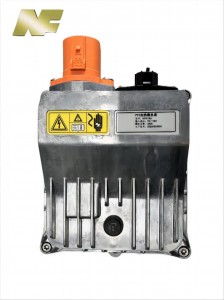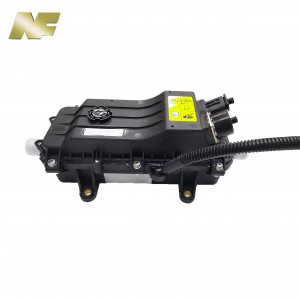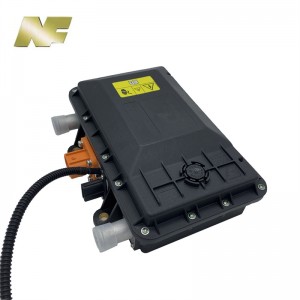As demand for electric vehicles (EVs) continues to grow, manufacturers are racing to develop innovative heating systems to provide efficient, reliable warmth to passengers in cold weather conditions. One of the key challenges in developing these systems is the need to balance the need for comfortable cabin temperatures with the limited energy capacity of electric vehicle batteries.
An increasingly popular solution is to use electric heaters, which offer the advantage of being more energy efficient than traditional combustion heating systems. Among various types of electric heaters, EV PTC heaters and EV HVCH (high-voltage coolant heater) are becoming major competitors in the electric vehicle heating market.
EV PTC heater is the abbreviation of Positive Temperature Coefficient and is a type of electric heater commonly used in electric vehicles. This type of heater works by passing an electric current through a heating element, which in turn heats and warms the air, which is then circulated throughout the cabin. One of the main advantages of PTC heaters is their ability to self-regulate, meaning that as the temperature inside the vehicle increases, the resistance of the heating element increases, reducing power consumption. This makes PTC heaters an efficient and reliable choice for electric vehicle cabin heating.
An EV HVCH, on the other hand, is a high-voltage cabin heater designed specifically for electric vehicles. This type of heater generates heat by using a high-voltage power source and then distributes the heat throughout the cabin. HVCH systems are known for their ability to provide fast, powerful heating, making them an attractive option for electric vehicle manufacturers looking to increase vehicle comfort and convenience.
One of the main benefits of electric vehicle heating systems is the ability to reduce reliance on heating of the vehicle's main battery, thereby significantly extending the range of an electric vehicle. This is especially important in cold climates, where heating requirements are high and can have a significant impact on the overall performance of an electric vehicle. By taking advantage of energy-efficient heating systems, electric vehicle manufacturers can increase the efficiency and usability of their vehicles, making them more attractive to consumers.
In addition, the development of advanced heating systems will also be critical for widespread adoption of electric vehicles in cold climate regions, where the need for efficient heating is a major concern for potential EV buyers. By providing reliable, efficient heating solutions, EV manufacturers can address one of the key barriers to EV adoption in these regions, opening up new markets and driving further growth in the EV industry.
In addition to heating the cabin, electric vehicle manufacturers are also exploring the use of electric heaters for other purposes, such as heating battery packs to optimize their performance in cold weather conditions. By keeping the battery at an optimal temperature, electric heaters can help improve the overall efficiency and longevity of the battery, ensuring that electric vehicles continue to perform well even in challenging environmental conditions.
Overall, the development of electric heating systems represents a new frontier in automotive technology that has the potential to revolutionize the way we think about vehicle heating. As EV manufacturers continue to invest in R&D in this area, we expect significant progress will be made in the coming years to bring more efficient, reliable and comfortable heating solutions to EVs.



Post time: Feb-27-2024




